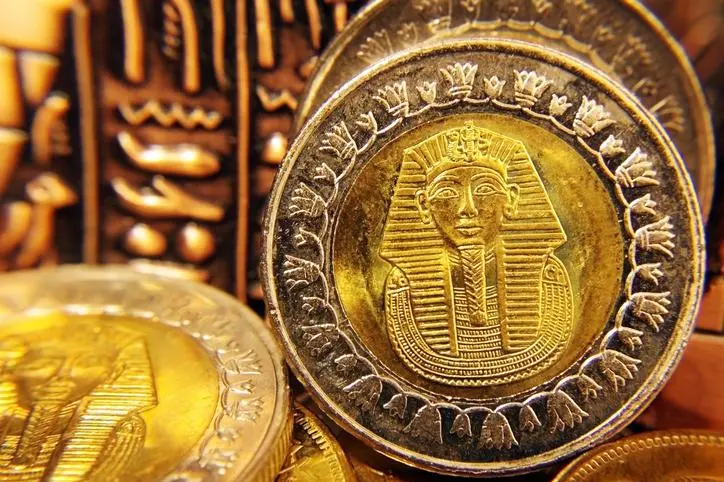PHOTO
Egypt will no longer attempt to intervene in foreign exchange markets, having completed its last auction of $100 million worth of treasury bills earlier this month, and is instead passing pricing control over to its banks, the deputy governor of the country’s central bank has said.
Speaking at the Institute of International Finance’s MENA Financial Summit on Tuesday, deputy governor Lobna Helal said it was “the conviction of the central bank management, the board, and even on the political side, that we will no longer go back to any regime of having the foreign exchange rate being administratively fixed”.
Moreover, she added that currency control was now no longer the central bank’s core target, its monetary policy would switch towards inflation targeting, adding that it would adopt a “flexible, inflation targeting network”.
Helal said that it expected to hit its intended inflation target or 13 percent, plus or minus 3 percent, by the end of 2018. Following the devaluation, headline inflation peaked at 33 percent in July last year, before gradually declining to 11.5 percent in May this year. However, the stronger dollar and pressure on emerging market currencies has led to inflation increasing again in recent months, hitting 16 percent in September.
Prior to a free float of Egypt’s currency in 2016, as the country sought a bailout package from the International Monetary Fund, Helal said that the country had “depleted most of our reserves” trying to defend the Egyptian pound, but that this action proved self-defeating as goods and services were all effectively being priced at a parallel market rate”.
She added that although the devaluation had been painful, it was the right course of action.
“Something that not a lot of people know is that even under the extended fund facility that we had from the IMF (the International Monetary Fund agreed a $12 billion support package in November 2016) we had a large provision where the central bank could go in and intervene in the market but we have not spent one cent of it,” she said, stressing the importance of gaining trust, not only of international institutions, but also domestically as much of its foreign currency comes from the domestic market.
“So keeping this trust, credibility, is very important,” Helal said.
IMF officials issued a statement last week praising the progress Egypt has made with its reform programme after conducting a review linked to its three-year, $12 billion funding facility.
The team leading the review issued a statement saying that Egypt’s economy “has continued to perform well, despite less favourable global conditions, supported by the authorities’ strong implementation of the reform program”.
It said GDP growth increased to 5.3 percent during Egypt’s last fiscal year, which ended on June 30, up from 4.2 percent in the prior year.
(Reporting by Michael Fahy; Editing by Shane McGinley)
(michael.fahy@refinitiv.com)
Disclaimer: This article is provided for informational purposes only. The content does not provide tax, legal or investment advice or opinion regarding the suitability, value or profitability of any particular security, portfolio or investment strategy. Read our full disclaimer policy here.
© ZAWYA 2018





















